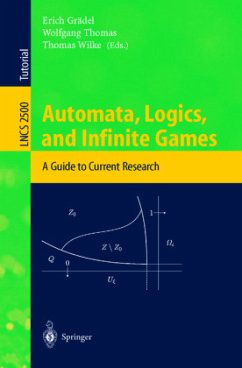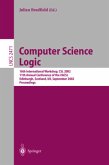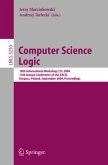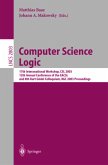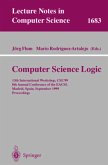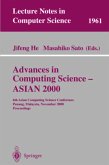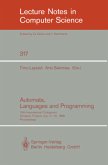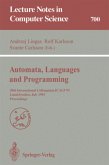A central aim and ever-lasting dream of computer science is to put the development of hardware and software systems on a mathematical basis which is both firm and practical. Such a scientific foundation is needed especially for the construction of reactive programs, like communication protocols or control systems.
For the construction and analysis of reactive systems an elegant and powerful theory has been developed based on automata theory, logical systems for the specification of nonterminating behavior, and infinite two-person games.
The 19 chapters presented in this multi-author monograph give a consolidated overview of the research results achieved in the theory of automata, logics, and infinite games during the past 10 years. Special emphasis is placed on coherent style, complete coverage of all relevant topics, motivation, examples, justification of constructions, and exercises.
For the construction and analysis of reactive systems an elegant and powerful theory has been developed based on automata theory, logical systems for the specification of nonterminating behavior, and infinite two-person games.
The 19 chapters presented in this multi-author monograph give a consolidated overview of the research results achieved in the theory of automata, logics, and infinite games during the past 10 years. Special emphasis is placed on coherent style, complete coverage of all relevant topics, motivation, examples, justification of constructions, and exercises.
From the reviews:
"This book aims to be a 'Guide to Current Research.' ... it is a concise and uniform presentation of at least 50 papers, along with notes in various places that help the reader to put things together. It has a good bibliography ... . the book could be used as a textbook for an advanced graduate course or seminar. ... It would be a good choice for a seminar involving students." (Hans-Jörg Tiede, SIGACT News, Vol. 35 (1), 2004)
"This book aims to be a 'Guide to Current Research.' ... it is a concise and uniform presentation of at least 50 papers, along with notes in various places that help the reader to put things together. It has a good bibliography ... . the book could be used as a textbook for an advanced graduate course or seminar. ... It would be a good choice for a seminar involving students." (Hans-Jörg Tiede, SIGACT News, Vol. 35 (1), 2004)

